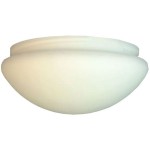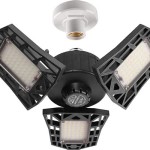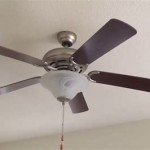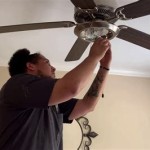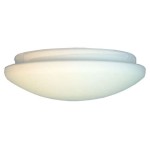Essential Aspects of Drop Ceiling Fluorescent Lighting
Drop ceiling fluorescent lighting, commonly found in commercial and industrial settings, offers several advantages, including energy efficiency, uniform illumination, and ease of installation. Understanding its essential aspects can help you make informed decisions about lighting design and maintenance.
Light Output and Efficiency
Fluorescent bulbs emit light through a process called fluorescence, where an electrical current excites a gas, causing it to emit ultraviolet (UV) radiation. A phosphor coating on the inside of the bulb converts this UV radiation into visible light. Fluorescent bulbs are known for their high luminous efficacy, measured in lumens per watt (lm/W), which indicates how much light they produce for the amount of energy consumed.
Color Temperature and CRI
The color temperature of light refers to its perceived warmth or coolness, measured in degrees Kelvin (K). Warmer light (2700K-3000K) creates a cozy and inviting ambiance, while cooler light (4000K-5000K) enhances alertness and productivity. The color rendering index (CRI) measures how accurately light renders the colors of objects. A high CRI is desirable for tasks that require accurate color perception, such as painting or retail displays.
Types of Ballasts
Ballasts regulate the electrical current supplied to fluorescent bulbs. Two main types of ballasts are commonly used:
- Magnetic Ballasts: Older and less efficient, these ballasts create a humming noise and can cause flickering during startup.
- Electronic Ballasts: More advanced and efficient, these ballasts operate silently and provide instant startup, reducing lamp wear.
Mounting and Installation
Drop ceiling fluorescent lights are designed to be installed in suspended ceilings with a grid system. They are typically mounted in lay-in panels or T-bars, making them easy to replace and maintain. The installation process involves connecting the ballasts to the power supply and inserting the fluorescent bulbs into the fixtures.
Maintenance and Lifespan
Fluorescent bulbs have a lifespan of around 10,000 to 20,000 hours, depending on the type and usage. Regular cleaning and maintenance can extend their lifespan. It's important to clean dust and dirt from the fixtures and bulbs to maintain optimal light output. Replacing old or malfunctioning bulbs promptly is also essential for safety and efficiency.
Applications
Drop ceiling fluorescent lighting is widely used in a variety of applications, including:
- Commercial Buildings: Offices, retail stores, schools, and hospitals.
- Industrial Facilities: Warehouses, factories, and workshops.
- Public Spaces: Airports, train stations, and libraries.
Conclusion
Drop ceiling fluorescent lighting offers a cost-effective and efficient solution for illuminating large indoor spaces. By understanding the essential aspects, such as light output, color temperature, ballasts, mounting, and maintenance, you can optimize the lighting design to meet your specific needs and ensure optimal performance.

Converting Drop Ceiling Fluorescent Light To Led 12 Steps With Pictures Instructables

How To Remove A Drop Ceiling 1905 Farmhouse

Metalux 2 Ft X 4 White Integrated Led Drop Ceiling Troffer Light With 5000 Lumens 4000k 24grled5040rt 120v The Home Depot

Suspended Ceiling Light Diffusers Diffuser Specialist

Metalux 2 Ft X 4 White Integrated Led Drop Ceiling Troffer Light With 5000 Lumens 4000k 24grled5040rt 120v The Home Depot

Ceiling Mounted Lighting Synthesis Cooper And Safety Fluorescent Tube Office Suspended

Drop Ceiling Lights Commercial Led

Drop Ceiling Lights Commercial Led

How To Replace Drop Ceiling Fluorescent Lights R Howto

3 Ways To Retrofit Drop Ceiling Lighting Earthtronics
Related Posts


